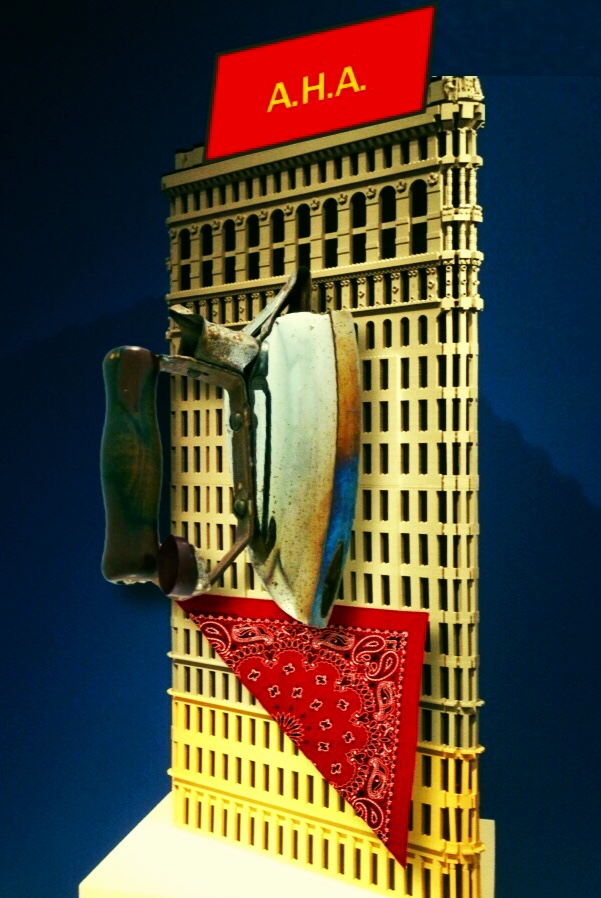
Nixon’s Farewell
When have we seen a presidential coup before?
History can be instructive, regardless of how passé (or rewritten) it has become. Much foam-specked spewing beginning anew yesterday about the word illustrated below. The oldest and wisest historians among us can remember all the way back to the bitter end of the 20th century (Phew!) when President Clinton was almost undone by evil Republican clingers obsessed with sex. They don’t find many useful lessons in that exercise, or at least they haven’t learned any that might be available. Worst of all from the consensus elite perspective is the fact that the Clinton Senate trial failed to remove him from office or even significantly decrease his approval rating. Nothing to see here. Move along…

There have been two Senate trials of presidents in American history. And two survivors.
Why I’m going to resurrect an even more ancient piece of history that really does contain a few vital learning points. President Richard M. Nixon was re-elected in the Year 1972 (I know! Egad!) by an absolute tidal wave of electoral and popular votes. Nixon received more than 60 percent of votes cast and 520 in the electoral college. McGovern won Massachusetts for a grand total of 17 electoral votes.
The Democrat Party was in a state of devastation. It had been flattened by… itself. McGovern was a far left candidate who seemed opposed not only to the Vietnam War but on account of that war opposed to much of American political tradition, claiming the mantle of a loud counterculture to be the next nation-changing incarnation of FDR. Economic times were tough. All his policy prescriptions added up to making government bigger, more expensive, and more humble on the world stage. The voters didn’t particularly like or dislike him personally. They didn’t particularly like Nixon either; they just preferred his policies to McGovern’s. (Something for Dems to remember now: disliking or disapproving of the President is not the same as not voting for him. Such polls mean little.)
The interval from November 1972 to August 1974 was 22 months. That’s how much time it took to bring Nixon down and eliminate the Republican Party as a political force for 6 years.
Am I daring to suggest that Watergate was a Democrat political operation? (“Do I dare to eat a peach?”) Yes. In hindsight, it’s pretty obvious. It was a successful presidential coup. Of all Republicans in the politics of the time, Nixon was the most hated. And hated is the right word, dating back to his days in Congress as a leader of the House Un-American Activities Committee responsible for, among other things, exposing and convicting Alger Hiss as a Soviet spy. When Nixon was running for Vice President, press stories suggested he was on the take. He saved himself by going on TV and enduring the humiliation of explaining that his wife wore a cloth coat and that they’d acquired the cocker spaniel puppy Checkers fair and square, with their own money.
No long recitation needed of his depiction in media through the years by a left-leaning press (yes, even then, kiddies) who continued at every opportunity to float the fantasy that Hiss and the executed Rosenburgs were in fact innocent of nuclear espionage as Soviet spies. Nixon narrowly lost his bid for the presidency after two blameless terms as VP for a very popular president. He subsequently lost a run for governor of California and after a nasty campaign bade farewell to the press — and ostensibly public life — with the words, “You won’t have Dick Nixon to kick around any more.” They thought they’d crushed him for good.
But Nixon returned. An unlikely comeback story. He beat a pitiable candidate, Hubert Humphrey, by a nose in 1968, actually began the long demanded drawdown of American troops in Vietnam, stabilized the economy without rocking the boat too much, opened a shockingly unexpected new dialogue with Red China, and hugged Sammy Davis, Jr. at the White House. Then came the ’72 election, a doubly cruel humiliation for the Democrats in government and media. First, the appalling enormity of the defeat itself. Second, the truly poisonous fact that the architect of Democrat ruin was Richard Nixon.
He had to be taken out. Today we hear the scripture of “White House plumbers” and “3rd rate burglary at the Watergate Complex,” accompanied by the mantra that “Nixon brought himself down” and “the press just reported it.” The assumption being that back before Reagan began to engender an irrational personal antipathy in the press corps because of his popularity and seeming immunity to critical reporting, the old-time press was really this eminently reasonable, spotlessly objective, well, ‘institution’ that existed to provide “just the facts, ma’am.”
If that were the case, why did Vice President Spiro Agnew succeed in assembling a much deplored constituency called ‘The Silent Majority’ that far from being an evil Republican fabrication did indeed exist and powered the re-election landslide to end all landslides in 1972? And Agnew didn’t dream up the notion of press as villain just to have something more substantial than McGovern to run against. The notorious phrase “nattering nabobs of negativity” was first uttered by the VP in April 1970 at a state-level political event. But this early sign of a pre-existing anti-administration press has also been misrepresented, as in the following discussion and quote from the book Nixonland.
William Safire would be the muse of that campaign. Here’s how the famous phase is described in Rick Perlstein’s remarkable recent book on that era, ‘Nixonland’: “At the California Republican Convention in San Diego, Agnew… loosed Safire’s most triumphant linguistic confection: “In the United States today, we have more than our share of nattering nabobs of negativism. They have formed their own 4-H club — the hopeless, hysterical hypochondriacs of history.” [Actually, the phrase was first used by Agnew in April 1970.]
Agnew knew the scribes would write about it, if only to mock him. That was good: Let the elites mock patriotism!
The words that William Safire penned and that Spiro Agnew mouthed actually had enormous impact that has lasted until this day. They helped foster among conservatives and the folks that Nixon called “the silent majority” a growing mistrust of the mainstream media, a mistrust that grew over two generations into a form of hatred. ***It also started a dangerous spiral of events — journalists started bending backwards to kowtow to their conservative critics, beginning in the time of Reagan, an ill-advised shift that did not win back a single reader or viewer on the right. Instead, it caused a lot of folks on the left and even the center to wonder why the national media had stopped doing its job, stopped questioning authority.***” [!!!]
This quote (asterisks-added) is a fine example of the way the left likes to reverse cause and effect. Conservative antipathy to left leaning media coverage now PREDATES any liberal bias one might observe in the press. Which is a blatant falsehood. I watched TV network news coverage of the 1964 Republican Convention that nominated Goldwater. The anchors and floor correspondents of all three networks could not have been more superior, scornful, and partisan in their commentary and interviews with Goldwater supporters. Two green bean NBC floor reporters — Brokaw and Chancellor, I recall — seemed proud of being thrown finally off the convention floor by party dignitaries. And, yes, Goldwater lost in a giant landslide to Lyndon Johnson in 1964. Happy Days are here again! Unthinkable that the Dem triumph could be undone so totally so soon.
Speaking of Johnson… he always seems to be absent from Watergate analysis, even by the RINOs anxious to prove their nonpartisan mettle by making no bones that Nixon deserved to be removed from office, horrible stuff he did, and the coverups worst of all! Probably true as far as it goes. But it begs the questions of how presidents are removed from office and what for. One could make a strong case that both of Nixon’s predecessors should have been removed from office based on what was indeed known by members of the White House press corps when they were in office. Kennedy’s obsessive sexual adventuring included sleeping with the mistress of a known Mafia Capo. His drug usage was probably criminal and at least disqualifying in and of itself. LBJ had some big scandals of his own that were covered in the press — the Bobby Baker and Abe Fortas conflicts of interest, the inconvenient fact that his net worth doubled during his years as POTUS — as well as huge lies to the public about Vietnam and some private N-Word slurs overheard by reporters while he was president. But all of this finally fell off the front pages. Nothing to see here. Move along.
In such matters it’s the press who decides which stories live and which stories die. There is always the option, rarely used in the old days, of aiming for far more than damaging political embarrassment. The option of turning up the heat until it’s so hot the real story becomes the story itself, bigger and bigger every day, and the game is waiting for the target to self destruct in mistaken tactics of self defense. The politicians who must take the concrete actions are in this context mere players on the press stage, posing for the spotlight and performing for the cameras.
How Nixon was taken out. As even the proudest lefty will tell you sagely and slyly. “It’s always the Coverup that gets them in the end. The original event wouldn’t have been enough. But they had to delude themselves that they could get away with it. Fools. It’s always the same.” Nixon didn’t resign because of a 3rd rate burglary. He resigned because of an 18-and-a-half minute gap in a tape recording of a confidential meeting. Which also took out the Vice President, the Attorney General, and almost all the entire top layer of the White House staff. The actual articles being assembled in the House were immaterial. Backed into too tight a corner, Nixon would resign. As he did. The election landslide to end all landslides undone in less than two years. A breathtaking political accomplishment.
Now what does any of this have to teach us about the current political thrashings around? Quite a bit. The decision to take out Trump almost certainly occurred long before the 2016 election. It didn’t begin with the Dem Party per sē but with the Hillary campaign, if there’s a difference between the two. The Steele Dossier that became the basis for the FBI/DOJ’s securing of FISA warrants to surveil the Trump presidential campaign arose from the Clinton campaign skunkworks and her connections from her tenure as Secretary of State. Hillary’s people knew Trump was a political juggernaut and they used their long experience with Bill’s escapades to find or make up a foreign sex scandal Nemesis for him that could blow the election wide open.
It was high risk, of course, being wholly fictitious, and Clinton didn’t want to use it herself in public unless she was really up against it. Using the dossier to justify FISA warrants made it seem likely that enough dirt could be found on Trump to use (semi)legimitately without her involvement. She had enough security scandal issues of her own to worry about.
It bears repeating that all of this is being done well before November 2016. Back in early 1973, the Washington Post had to resurrect its dull story from June ‘72 about a 3rd rate burglary to build their Big Bertha. Hmmm. Wasn’t it about June 2016 that Trump was starting to look like a potentially big problem? Compared to the Watergate burglary, though, even the existence of the fraudulent Steele Dossier is an incredibly larger crime. But the MSM has never seen fit to turn up the heat under this particular burner.
The upshot is that the Nixon hit squad in the MSM got a later start than the Trump hit squad. And they have been even more ruthless and open about their intentions. Why were/are the Trump attackers so motivated, so heedless, in their schemes? Because when it comes to hatred, the Trump presidency is Nixon all over again. The party that thought it had a lockdown on the Oval Office finds its prospects in ruins so obliterating they could not have conceived of them before Trump came out of the citizen wilderness to hammer them. They had thought they could get away with the stumblings and failures and setbacks of the sorry Obama presidency, because Hillary could restore momentum without undoing the narrative of the Obama legacy. Trump’s narrow electoral college win was every bit as destructive to Democrat power prospects in the long term as Nixon’s landslide had been, perhaps even more. Within six months, Trump had already dismantled as much as 50 percent of the so-called Obama Legacy. With Supreme Court appointments dropping into his evil hands, he could make his changes stick too. Like Nixon, he HAD to be taken out, not just defeated in the next election.
All the efforts and side offensives of the Mueller Investigation have not really been about gathering evidence of Russian collusion. They have been about turning up the heat on Trump through time with leaks and irrelevant prosecutions of minor players while not much was really happening inside the investigation — in the not improbable hope that Trump would make some misstep like Nixon’s tape fiasco that would cause him to bring himself down. Nixon’s stalking predator was the Washington Post, with a multitude of support from the rest of the print and television media. Trump’s predator is far bigger and more monolithic than that. It consists of the entire Democrat Party apparatus, all Dem officeholders and even some RINO Republicans, every corner of the mainstream media from news organizations, to celebrities, entertainment movies and TV shows, paid protesters in multiple deniable but reliably violent acronymic organizations, to the whole monolith of the educational establishment, from suburban kindergartens to the administration offices of Berkeley, Yale, and Michigan. Foreign plutocrats like George Soros are also involved in multiple ways, as are American corporations run by billionaire dilettantes. All poised and waiting, checkbooks busy.
Has Trump made that fatal misstep, that consummation devoutly to be wish’t by the now wholly insane left? No. Not yet. He might, but the clock keeps ticking and only rumors continue to dribble out of it with the seconds, minutes, and hours.
Why the Nixon comparison is vitally important. It is now 26 months since the election. Nixon went down in 22 months. Yet Trump is facing a far more formidable, clandestine, insider-planned and executed offensive receiving popular support in ways not even the Watergate scandal ever achieved. Nobody wanted Nixon dead at the time. They wanted him out, not even necessarily in prison. There’s a difference.
The difference is, as it has been, Trump. He fights. He fights for himself, in public, and isn’t afraid to call out his foes by name. He’s not hiding behind his Chief Of Staff in a bunkered Oval Office. He continues to carry out the duties of the presidency and accomplish more than all but a few before him have.
The fight is his victory. He will not resign. They will have to convict him in the senate to remove him from office. But this time there can be no pretense that principled, objective journalism and law enforcement authorities have definitely removed a malefactor from office. This time, there is a population of Trump supporters who will continue to fight on even after he leaves the White House, because they can see and know that dirty work is being done.
If they thought about it, the Trump haters should realize that they were lucky to bag Nixon as easily as they did. Trump is, will be much much harder to bring down. And if they succeed, they will have earned themselves a deeply corrosive Pyrrhic victory. One that may ultimately bring down the careers and life prospects of all those who participated in the hit on Trump. Who will be a martyr throughout the remainder of American history.
I know, as usual, I’m writing this to put it in the public record of our times. If you don’t understand what I’m saying, or don’t read a word of it, I don’t care. That’s one of the ways I understand the real strength of President Donald Trump.





















